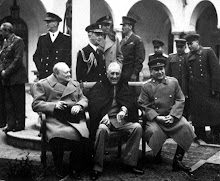News of Hosni Mubarak's departure has dwarfed another high-profile resignation, one that would normally top the news pages.
Axel Weber, the Bundesbank President, is leaving at the end of April. Yeah, I know, it sounds boring, another central banker just leaving, good riddance.
But what may actually follow is very important. His departure from Buba – and his non-participation in the race for European Central Bank chief when Jean-Claude Trichet leaves in November – means the ECB's philosophy will change maybe beyond recognition.
Weber was one of the staunchest opponents to the ECB's practice of buying government bonds from countries too weak and too indebted to be able to sell them in the markets.
The central bank says it is buying these bonds only to ensure the orderly functioning of the markets. But if the markets price these bonds as very risky, this probably means the markets perceive a risk there, therefore they are functioning in an orderly way... so why should the ECB intervene?
Since the beginning of the crisis, the ECB has lost a lot of its credibility. It keeps saying the only needle in its compass is fighting inflation – but it keeps acting as if it has to save the periphery members by buying their bonds, in exchange for imposing fiscal tightening measures to try and solve the mess.
Many people will say there is nothing wrong with the ECB doing all these things – after all, somebody has to be in charge. Except, of course, that its members were not democratically elected by people in these countries so therefore they have no mandate to impose raising taxes and cutting spending.
Really, the ECB should just stick to their needle. But maybe that's what Weber's decision is signalling: that the ECB's mandate of just fighting inflation is really and truly over. Let the money printing...err, bond-buying bonanza begin.
PS Come to think of it, one good thing may come of this: the markets may save the day. Investors may think that, with Weber gone, the ECB won't shy away from printing money. They will therefore price the periphery bonds as less risky, since the ECB is there to save them. So the ECB may not need to actually print the euros. Spring is near, let's be positive.

No comments:
Post a Comment